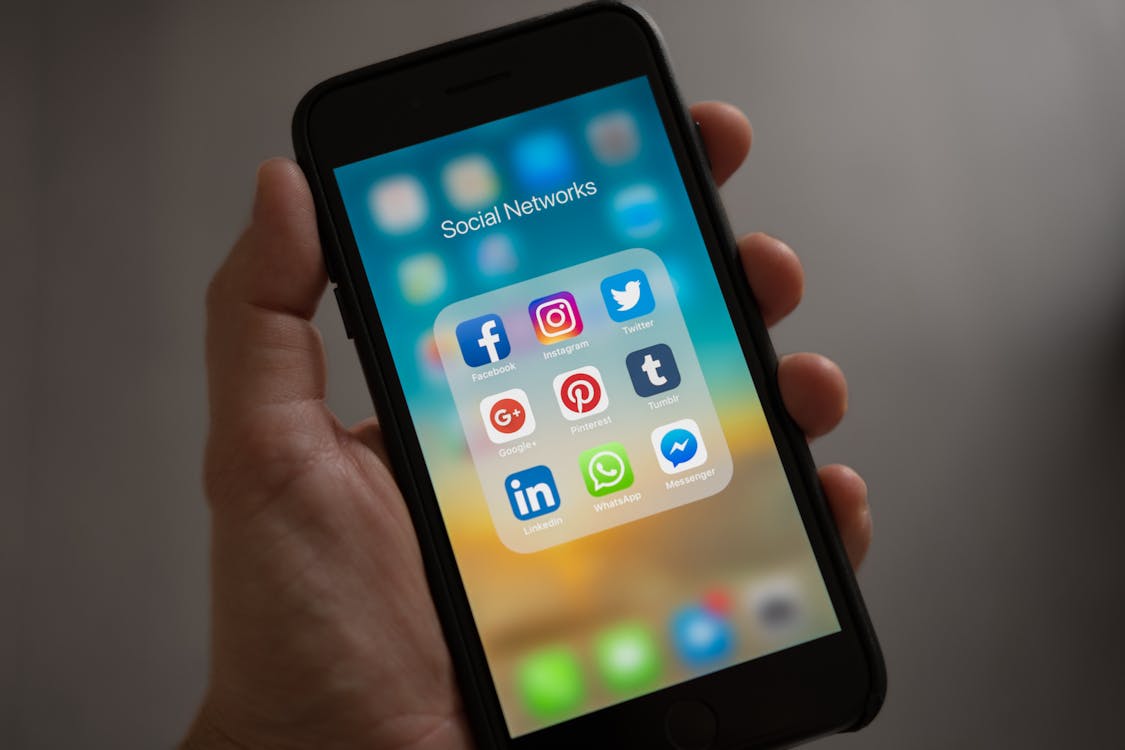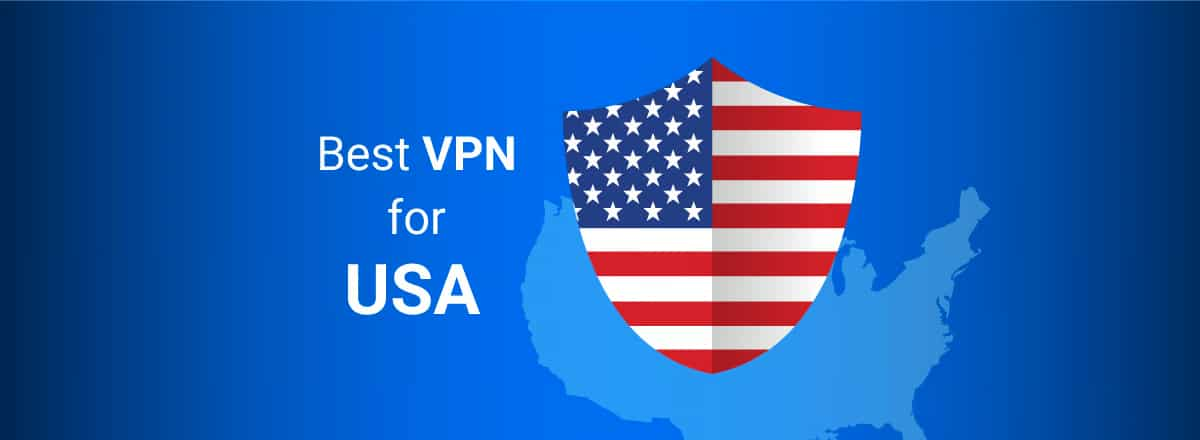In today’s digital age, online security has become more important than ever. With constant surveillance by government agencies, cybercriminals, and Internet Service Providers (ISPs), it’s no surprise that many individuals in the United States are turning to Virtual Private Networks (VPNs) to protect their online privacy. VPNs offer a wide range of benefits, from securing your connection to bypassing geo-restrictions. In this article, we will explore the advantages of using a VPN in the USA, the best VPNs available for American users, and why having a VPN is essential in maintaining your online security and freedom.
Why You Need a VPN in the USA
The United States, as a member of the Five Eyes intelligence alliance, is known for its extensive surveillance programs. The government routinely collects data on its citizens, often without their knowledge or consent. This includes everything from browsing history to location tracking and even social media activity. Unfortunately, this has led to significant breaches in privacy, with American citizens often feeling like they are constantly being watched.
Having a VPN by your side can help mitigate these privacy concerns. A VPN encrypts your internet connection, making it virtually impossible for third parties, including the government, to snoop on your online activities. By masking your IP address and routing your internet traffic through a secure server, a VPN ensures that your online actions remain private and anonymous. This level of privacy is crucial, especially in a country like the United States, where government surveillance and data collection are prevalent.
Moreover, VPNs help users evade various forms of censorship and geo-restrictions. Whether you’re a US citizen traveling abroad or a foreigner seeking to access US-based content, a VPN allows you to bypass regional blocks and enjoy a wider range of online services. For instance, you can access Netflix US, Hulu, ESPN, or any other US-specific platforms, regardless of where you’re physically located.
How VPNs Help Protect Your Privacy and Security
- Encryption and Data Protection: VPNs use advanced encryption protocols to secure your internet connection. This encryption prevents hackers, ISPs, and government agencies from intercepting your data. This is particularly important when using public Wi-Fi networks, as these networks are often targeted by cybercriminals looking to steal personal information.
- Anonymity: By masking your real IP address, VPNs help protect your identity while browsing the internet. This makes it difficult for anyone to trace your online activities back to you, ensuring that you can surf the web without fear of being tracked.
- Bypassing Geo-Restrictions: Many websites and streaming services limit access based on your geographical location. With a VPN, you can connect to a server in a different country, making it appear as though you’re accessing the internet from that location. This allows you to access geo-restricted content, such as Netflix US, BBC iPlayer, and more.
- Preventing ISP Throttling: Internet Service Providers often throttle users’ internet speeds, particularly when streaming video or engaging in high-bandwidth activities. By using a VPN, you can avoid these restrictions, ensuring faster and more reliable internet speeds.
- Secure Online Transactions: VPNs provide a secure tunnel for conducting online transactions. Whether you’re shopping online or accessing your bank account, using a VPN ensures that your financial information is protected from hackers.
- Protection Against Malware: Many VPN services offer additional features like malware protection and ad-blockers, helping to protect your device from malicious software and intrusive ads. This is especially useful when browsing unfamiliar websites.
What to Look for in a VPN for the USA
While there are numerous VPN providers available in the market, not all of them offer the level of security and performance needed to protect your online activities. When choosing a VPN for use in the USA, there are several factors to consider:
- Server Locations: A good VPN should have a large number of servers in the United States to ensure fast and reliable connections. The more servers available, the better your chances of finding a server that offers optimal performance.
- Security Features: Look for a VPN that uses strong encryption standards, such as AES-256, and offers additional features like a kill switch, DNS leak protection, and a no-logs policy. These features will help ensure that your online activities remain private and secure.
- Speed and Performance: For a seamless online experience, especially when streaming or torrenting, the VPN should offer fast speeds and low latency. Opt for a provider that has a track record of maintaining high speeds across its server network.
- Ease of Use: The VPN should offer user-friendly apps for various devices and platforms, making it easy to connect and configure the service.
- Customer Support: Choose a VPN provider that offers reliable customer support, preferably with 24/7 live chat or email support. This ensures that you can get help whenever you encounter an issue.
The 5 Best VPNs for the USA in 2025
Here are the top 5 VPNs for the USA, each offering unique features that cater to the needs of users looking to protect their online privacy and security:
1. NordVPN
NordVPN is widely regarded as one of the best VPN providers for users in the USA. With nearly 2,000 servers in the country and over 4,300 servers worldwide, NordVPN offers exceptional coverage and performance. It supports advanced features such as Double VPN, Onion Over VPN, and Threat Protection, making it a top choice for security-conscious users. NordVPN’s fast speeds and excellent optimization for streaming and P2P activities ensure a smooth online experience, whether you’re watching Netflix US or torrenting anonymously.
2. ExpressVPN
ExpressVPN is known for its fast speeds and reliable performance. With over 1,000 servers in the US and 3,000+ servers globally, ExpressVPN ensures that users can access US-based content from anywhere in the world. It offers strong security with its proprietary Lightway protocol and a strict no-logs policy. ExpressVPN is also user-friendly, with apps available for all major platforms, making it an ideal choice for both beginners and experienced users.
3. CyberGhost
CyberGhost is a great option for users looking for a budget-friendly VPN that doesn’t compromise on security. With over 1,400 servers in the US and 12,000+ servers worldwide, CyberGhost offers good performance for streaming, torrenting, and general browsing. Its focus on privacy and security, including a no-logs policy and transparency reports, makes it a solid choice for privacy-conscious users. Additionally, CyberGhost’s affordable pricing plans and 45-day money-back guarantee make it an excellent value.
4. Surfshark
Surfshark is another great VPN for the USA, offering unlimited simultaneous connections and a large server network. With over 600 servers in the US and 3,200+ servers globally, Surfshark is an excellent option for users who want to protect multiple devices at once. It supports P2P traffic, works with popular streaming platforms like Netflix US, and offers strong security features, including 256-bit encryption and split tunneling. Surfshark is also one of the most affordable VPNs on the market, making it a great choice for budget-conscious users.
5. ProtonVPN
ProtonVPN is known for its impenetrable security, thanks to its Swiss-based servers and advanced features like Secure Core and NetShield. With 14 server locations in the US and over 8,200 servers globally, ProtonVPN offers excellent coverage and security. Its no-logs policy and support for P2P and streaming make it a great option for privacy-conscious users who also want to access US-based content. While ProtonVPN may be a bit more expensive than other options, its commitment to security and privacy makes it a top choice for those seeking the highest level of protection.
Using a VPN in the USA is no longer just a luxury—it’s a necessity for anyone who values their online privacy and security. With the constant surveillance by the government, ISPs, and cybercriminals, a VPN provides an essential layer of protection against unwanted snooping and data breaches. It also helps you bypass geo-restrictions, allowing you to access content from anywhere in the world.
When choosing a VPN for the USA, it’s important to consider factors such as server locations, security features, speed, and customer support. The five VPNs mentioned above—NordVPN, ExpressVPN, CyberGhost, Surfshark, and ProtonVPN—offer a range of features and benefits that cater to different needs and budgets. By selecting the right VPN, you can enjoy a secure and unrestricted online experience, whether you’re at home or traveling abroad.
Investing in a premium VPN service is a small price to pay for the peace of mind that comes with knowing your online activities are secure and private. So, whether you’re streaming your favorite shows, browsing the web, or engaging in online transactions, make sure to choose one of the best VPNs for the USA to protect your digital life.
How Did We Test and Rank These VPN Providers for the USA?
When it comes to choosing the best VPN services, particularly for those looking for a provider based in or around the United States, the stakes are high. VPNs are essential tools for maintaining privacy, securing online activity, and accessing content that may be geographically restricted. Given the overwhelming number of options available in the market, our team was tasked with selecting the absolute best VPNs for American users in 2025. To do this, we tested hundreds of providers, applying a set of strict and crucial criteria to ensure we could offer you the most reliable and effective VPN options.
Key Criteria for Ranking the Best VPN Providers
1. Servers in the United States One of the most important factors for a VPN service catering to users in the United States is the availability of servers within the country. If you’re accessing a VPN from outside the US and need an American IP address for browsing, streaming, or accessing location-specific services, the VPN provider must have ample servers in the US. It ensures that your virtual presence can easily be masked with a secure, reliable connection, avoiding geolocation barriers when accessing US-based content.
Furthermore, for users within the United States, VPNs with multiple server locations within the country ensure a faster and more stable connection to the internet, which is crucial when attempting to bypass restrictions or maintain privacy. We prioritized providers that offer a wide range of server locations across the country to cater to different needs and enhance performance.
2. Servers Outside the United States While US-based servers are essential, having a solid network of servers abroad is just as important. Many users in the United States use VPNs to access content that is blocked or restricted to other countries. A good VPN must have plenty of international server locations to give you the flexibility of connecting from different regions across the globe. For example, streaming platforms like Netflix, BBC iPlayer, and others restrict content based on location, and having access to foreign servers can unlock these streaming portals.
Providers that offer diverse geographical server networks make sure you can access all the content you want, whether you’re at home or traveling abroad. We carefully evaluated VPNs with significant server coverage worldwide to make sure users have the flexibility they need.
3. Privacy and Security When it comes to VPN services, privacy and security are non-negotiable. Since VPNs are often used to secure sensitive data, maintain privacy, and avoid surveillance, we focused on providers that offer robust encryption and privacy protection. The gold standard is 256-bit AES encryption, which is the most secure form of encryption in the industry and ensures that your data remains private and safe from hackers and snoopers.
Additionally, a no-logging policy is essential to maintaining anonymity. A provider that keeps no records of your online activity can ensure that even if your connection is ever compromised, your data will not be stored and potentially exposed. VPNs that offer IP leak protection, a kill switch, and ad-blocking features further add to the security and privacy package, guaranteeing that you can browse the internet securely without worrying about privacy risks.
4. Streaming Capabilities In today’s digital age, the ability to stream content is a top priority for many VPN users. Whether it’s unblocking geo-restricted content on Netflix, Hulu, or other streaming services, a VPN should be capable of bypassing location-based restrictions without compromising connection speed or quality.
We tested VPNs to ensure they could unblock major streaming platforms, especially Netflix US, which is a popular use case for many VPN users in the US. Our selected providers can access a wide array of streaming platforms in 2025, including international services, ensuring you have access to all the content you crave.
5. Fast Speeds When using a VPN, speed matters. After all, there’s little point in using a VPN if it significantly slows down your internet connection. We tested the performance of various VPN providers to ensure they could deliver fast speeds while maintaining encryption. On average, the best providers delivered speeds of 10 Gbps or more, which is fast enough for smooth browsing, buffer-free streaming, and efficient torrenting.
Whether you’re using the internet for casual browsing or more data-intensive tasks like streaming or gaming, fast VPN connections ensure you get the best experience without frustrating delays or lag.
6. P2P Allowance Many users turn to VPNs for secure peer-to-peer (P2P) activities such as torrenting. We made sure to include only those VPN providers that allow P2P sharing, ensuring that you can download files and torrents safely. VPNs that support torrenting will encrypt your connection and mask your IP address, protecting you from potential copyright infringement notices and surveillance.
The ability to download content safely is a major feature for users in the US, and we tested each VPN to ensure they provided secure, reliable P2P capabilities without risking your anonymity.
7. Simultaneous Connections With an increasing number of devices in each household, it’s crucial that a VPN provider allows multiple devices to connect at once. We selected VPNs that support at least seven simultaneous connections, allowing you to protect your entire family’s devices or all your personal devices simultaneously with a single subscription.
Providers like Surfshark offer unlimited connections, which gives you maximum flexibility to secure as many devices as you want, ensuring you get full protection no matter what devices you use to connect to the internet.
8. Price While high-quality VPN services often come with a price tag, it’s essential that they offer value for money. Our team selected providers that are not only secure and feature-rich but also affordable. NordVPN, for example, offers a generous 73% discount and 3 free months when opting for the 2-year plan, and each VPN on our list offers special deals that allow for significant savings in the long run.
We understand that many users are looking for affordable VPNs, and we made sure to feature providers that offer solid performance without breaking the bank.
Why Should You Avoid Free VPNs in the USA?
At the beginning of our article, we briefly touched on the notion of free VPNs. While these services may seem attractive to users who don’t want to pay for a subscription, we strongly advise against using free VPNs in the United States. Here’s why:
Small Server Fleet Free VPN providers typically offer a limited number of servers, which negatively affects their performance. Many free VPNs only have one or two servers in the United States, which quickly become congested as more users connect. This results in slow speeds and a poor browsing experience. Additionally, the lack of international servers makes it nearly impossible to access content from outside the US.
Lack of Security Free VPN providers often compromise on security. While some offer basic features like 256-bit AES encryption, many fail to provide important privacy features, such as a no-logging policy or kill switches. Furthermore, some free VPNs have been known to sell user data to third parties, putting your privacy at risk.
Poor Performance and Limited Bandwidth Free VPNs are notorious for poor performance, limited bandwidth, and slower speeds. Providers like TunnelBear impose monthly data caps, and services like ProtonVPN limit bandwidth on their free versions, leaving you with a frustrating online experience. Additionally, free VPNs rarely support streaming or P2P, making them unsuitable for users who want to access Netflix or torrent files.
No Streaming/P2P Support Most free VPNs cannot unblock streaming platforms like Netflix, Hulu, or BBC iPlayer. Furthermore, they do not allow torrenting or P2P sharing, meaning you’ll be unable to download content securely. If you need a VPN for streaming or torrenting, free VPNs are simply not an option.
So, Should You Use a Free VPN in the USA? In conclusion, we strongly recommend against using free VPNs in the USA due to their numerous limitations in terms of server coverage, security, performance, and support for streaming and P2P activities. If you absolutely must use a free VPN, ProtonVPN and Hide.me are two relatively decent options, but they come with significant limitations that hinder the overall user experience.
Are There Any Good VPNs Based in the US?
Lastly, we address the question of US-based VPN providers. Many users are wary of VPNs based in the United States due to concerns over privacy, as the US is a member of the 5 Eyes intelligence alliance. However, not all US-based providers are problematic.
For example, Private Internet Access (PIA) is a reputable US-based VPN that boasts solid security features, a no-logging policy, and a wide range of servers both in the US and internationally. Similarly, IPVanish has earned praise for its security audit by Leviathan Security, demonstrating that not all US-based VPNs are bad choices for maintaining privacy.




